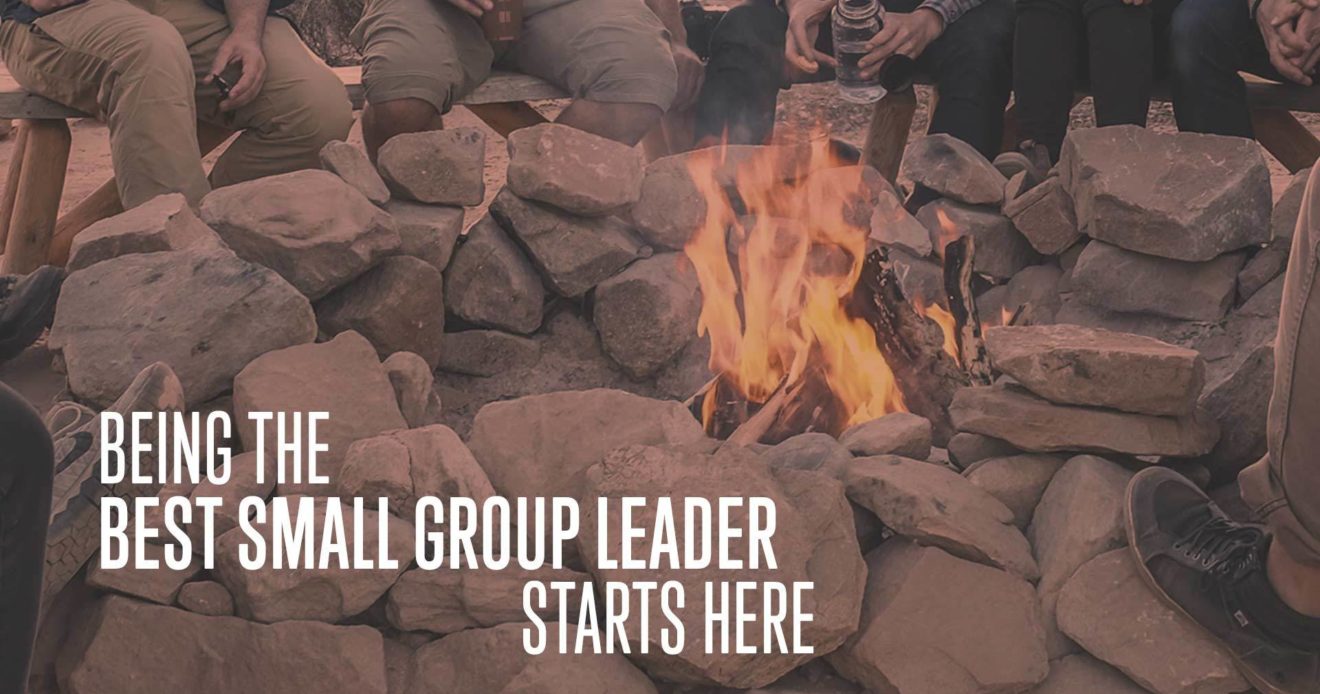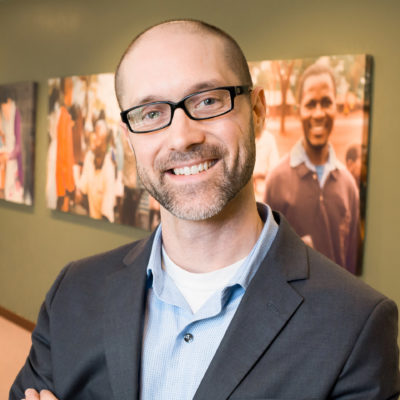
Being The Best Small Group Leader Starts Here
There is just something about small groups. They are not just trendy but have become part of the church's best practices. They are not just important, they are vital. However, if not done well, small groups can turn into a disaster. And we know it. We feel that pressure. You signed up, excited to help. You are given a list of 8 to10 names. You even start praying for each of them. And then that first night arrives. The pressure is on, and the anxiety builds.
What if no one talks?
What if I don’t get along?
What if they don’t like me?
We all want to be a great small group leader. We all want to connect with our students on a deeper level. We all want our small group to be the ideal small group, the one that instantly bonds together, trusts each other, and grows into little teenage disciples protégés. But whether it is fear and anxiety or wide-eyed optimism, the sheer magnitude of the task is often overcome with the necessity of complacency and comfort with mediocrity. We settle for them just showing up from week to week. So what if you did something different this year?
There are plenty of books and blog posts that feature best practices—many of which are great advice, but may not always work for you or fit your group dynamics. So I wanted to offer you a few of my own best practices that have worked with literally hundreds of students over the years. These break through personalities and dynamics and to the heart of every student. In other words, if you want to be the best small group leader, start here first.
Think Of Your Small Group As A Team
I am sure you are anxious and excited to dive into the material, ask thought provoking questions and have the opportunity to wax eloquently on matters of Jesus and salvation.
But don’t.
Instead, treat your small group as though it were a team. Every team, and consequently every group of students are different. Different personalities create different dynamics that can drastically affect your ability to have a productive discussion when you do finally get to the questions. So, do two things first.
Do a team building exercise. In fact, do my favorite. It is called the Helium Stick (http://www.ultimatecampresource.com/site/camp-activity/helium-stick.html). Trust me; it will provide you with incredible insight into who is your natural leaders, who are going to talk more or talk less, who are the ones slightly disengaged, and who are highly motivated. Nearly every class I ever taught did this exercise first. Plus it’s fun because it looks easy and is anything but.
Then, have your students do a Meyers Briggs personality test (https://www.16personalities.com/free-personality-test). Although your student's test results will change over time, it will prove helpful for you and them. Have them share with the group, talk about the results. Was it accurate? Were there any surprises? Do one yourself and share it as well.
I once inherited a group that had several strong female personalities on the team. They fought a lot, and about everything. So I had them do the test. Once they saw how alike their personalities were, they began to work together, because greater knowledge helped foster understanding. By the end of the year, they were not only incredibly productive but the best of friends.
As You Work To Make Them Into Disciples, Make Them Into Disciples Who Make Disciples
I say this all the time, but I can’t stress it enough. It is key. You can’t expect to sit around once a week, talking about life and Jesus and expect discipleship to happen. You might have some nice discussions, but you will lack real growth in your students.
Find ways for your students to invest in others and ways to carry out the mission together. The easiest thing is to have students volunteer in the younger grades in Sunday school or programs like Awana. But for this to work, you have to give them real responsibility and allow for real failure. This takes time. It takes energy. And it will take planning and intentionality on your part. The investment is real. But so is the return.
Get Passed The Once A Week Relationships
Generation Z craves community. They want adult influence and guidance. They are looking to look up to you. So the more you are available, the better. But do more than just go to a game or performance. Make a specific comment about it. For example, one of your students plays basketball. In Friday nights he game hits some clutch free throws to win the game. That Sunday morning you could say, “Wow, what a great game! Nice job!" Or you could say, "Wow! Those free throws were clutch. How do you stay so calm under that kind of pressure?" The difference is subtle but powerful. The first statement says, I was kind of at your game, or maybe I heard about it, read about it, etc. The second says, I was there and engaged and cheering for you.
Most of us when we think of small groups, we think of Jesus and the twelve. So let's do that. First, Jesus handpicked his group. Most of us can't do that, but when you look at what we know of the disciple's personalities, there was some intentionality in how Jesus picked. Of course, he is Jesus—we don't have his insight—so we need some additional work and help and understanding others. Second, Jesus sent his disciples. He sent them out in pairs to carry out the mission. Sometimes they did well, other times they failed. Finally, Jesus cared deeply for his disciples, and he clearly spent more than just once a week with them. He fully invested in them.
As a small group leader, you have a great privilege. You get to walk alongside and disciple students. You get to have a tremendous impact on their lives now and well into he future. You get to be the person they talk about one day when sharing their testimony. So be sure that start off on the right foot, and that you do everything you can to help them become the person God designed them to be.
Steve Kozak
Executive Director of AwanaYM
Steve currently serves as the Executive Director of AwanaYM. Previously, Steve spent over a decade teaching high school theology and apologetics from Detroit to LA. Steve holds a Masters degree in Theology from Moody Theological Seminary and a Masters in Christian Apologetics from Biola University. Steve is also an adjunct professor at Trinity International University. He speaks and writes on youth ministry, youth culture and apologetics. He resides in Chicago, IL with his wife and four children.FollowSteve Kozak on Twitter: stevenmkozak
Comments
Get the AwanaYM Update
Receive youth ministry resources in your inbox. Subscribe today!
